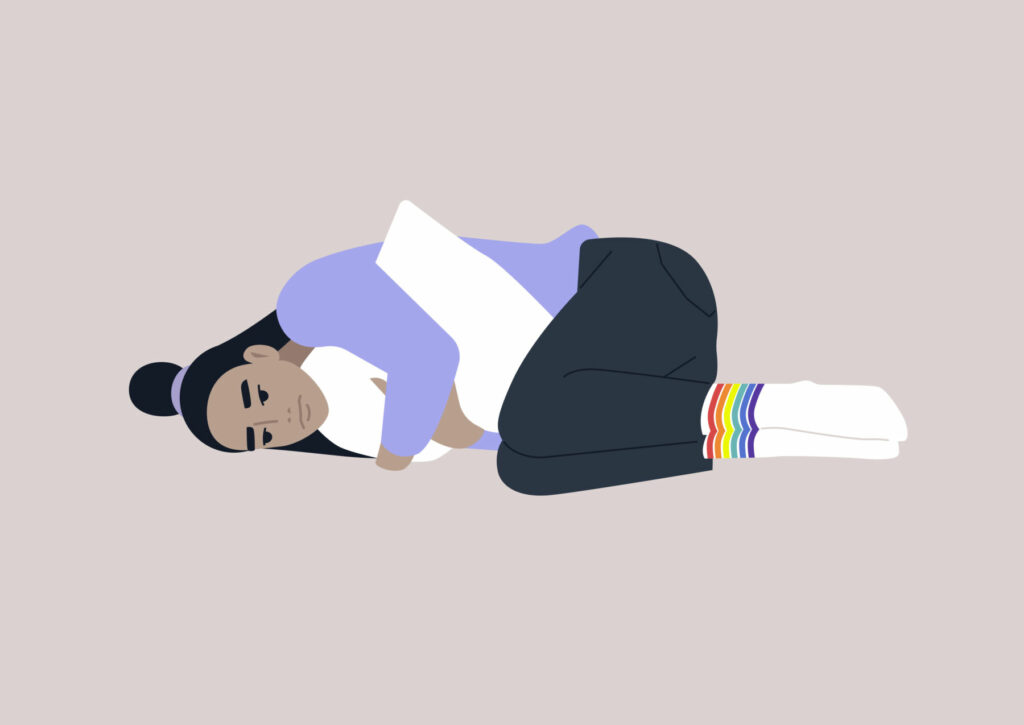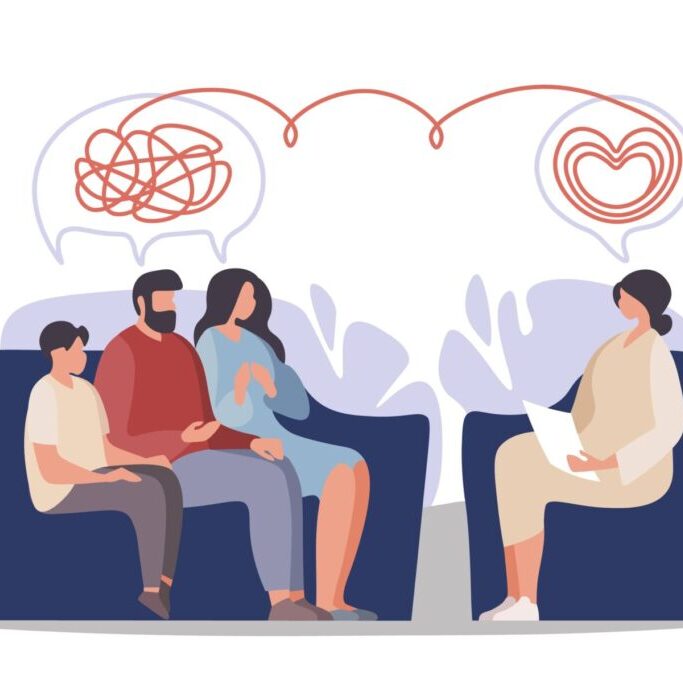Overcoming Gay Loneliness

In the colorful tapestry of Chicago’s LGBTQ+ community, a silent yet profound battle wages on – the battle against gay loneliness. While significant strides have been made in acceptance and understanding concerning the lives of LGBT individuals, the struggle for genuine connection persists, casting a shadow over countless lives, especially those of gay men.
This article delves into the intricate dimensions of gay loneliness, peeling back its layers to reveal its complexities. By understanding its roots and embracing proactive strategies within the diverse and vibrant backdrop of Chicago’s LGBTQ+ life, we can pave the path toward healing and authentic connection.
The Prevalence of Gay Loneliness in Chicago
Chicago, known for its vibrant LGBTQ+ scene, isn’t immune to the prevalence of gay loneliness. Despite the city’s open-minded atmosphere, many individuals, particularly gay men, find themselves grappling with a profound sense of isolation. The fear of rejection becomes a constant companion, infiltrating every aspect of life.
From the Boystown neighborhood’s glittering clubs to the diverse events hosted by the Center on Halsted, the struggle for genuine connection persists, overshadowing the city’s lively queer spaces. But why?
The Role of Social Media and Mental Health Impact in Chicago’s LGBTQ+ Community
In a city where digital connection is the norm, social media plays a significant role in the lives of LGBTQ+ individuals. However, it often intensifies feelings of isolation. The constant comparison to others’ virtual lives can lead to severe mental health implications, affecting even the most vibrant members of the community.
Chicago’s LGBTQ+ community, despite its diversity, isn’t immune to the pressures of social media. The curated online personas often clash with the authentic selves, deepening the sense of loneliness even in a crowd of accepting faces.
Understanding the Roots of Gay Loneliness in Chicago
The roots of gay loneliness in Chicago, much like in any other city, are intricate and multifaceted. Societal pressures to conform, the perpetual process of coming out, and the unrealistic beauty standards perpetuated by media affect individuals deeply.
Chicago’s LGBTQ+ community, despite its progressive nature, still grapples with the stigma surrounding homosexuality, creating a perfect storm of isolation. Recognizing these roots is essential to understanding the depth of the issue within the city’s LGBTQ+ population.
Minority stress refers to the unique, chronic stressors that individuals from marginalized communities experience due to their minority status, and this concept is highly relevant when considering loneliness within the gay community. These stressors can include external factors like discrimination, stigmatization, and marginalization, as well as internal processes such as internalized homophobia and concealment of one’s sexual orientation.
The experience of minority stress contributes to elevated levels of anxiety, depression, and emotional exhaustion, which in turn create barriers to social engagement and relationship formation. For gay individuals, the constant societal pressure and judgment can produce a heightened sense of vulnerability and self-consciousness, which may deter them from seeking social connections or disclosing their true selves even within ostensibly accepting settings. This restricted social interaction can significantly contribute to feelings of loneliness and isolation.
Furthermore, the internalization of these stressors can sometimes lead to avoidant behaviors and coping mechanisms that may seem protective in the short term but ultimately serve to further isolate the individual. In this way, minority stress not only contributes to gay loneliness but also acts as a pervasive impediment to mental well-being, making it a critical issue for both psychological research and clinical intervention.
Internalized homophobia refers to the internalization of societal prejudices and stigmas related to homosexuality within an individual who identifies as gay. This can manifest in a variety of ways including self-doubt, self-hatred, and even denial or suppression of one’s own sexual orientation.
Such internal conflicts often serve as significant emotional barriers, contributing to feelings of isolation and loneliness within the gay community. This phenomenon amplifies existing challenges tied to emotional intimacy and relationship-building.
Due to the internal strife stemming from internalized homophobia, individuals may find it difficult to form healthy relationships with same-sex partners or even to engage fully within their community. They may also avoid seeking emotional or psychological support for fear of further stigmatization, thereby exacerbating their sense of loneliness. In many cases, internalized homophobia may also lead to avoidance of meaningful connections with heterosexual individuals, as it feeds into broader concerns of social rejection and judgment.
Hence, internalized homophobia acts as a debilitating emotional factor that intensifies feelings of loneliness, creating a cycle that is difficult to break without professional help or conscious self-reevaluation.
Combating Gay Loneliness Internally: Strategies for Healing in Chicago
Consider these internal strategies to combat gay loneliness:
- Mindfulness: Mindfulness is not just about being present; it’s about acknowledging the pain of loneliness without judgment. It’s about recognizing that these feelings, however intense, are temporary and can be navigated.
- Practice Compassion for Yourself: Self-compassion is the balm for the wounded soul. It’s about treating oneself with the same kindness and understanding that one would offer to a dear friend. Acknowledge the struggle without self-blame; loneliness does not diminish one’s worth.
- Establish a Routine: A daily routine brings structure and stability, providing a sense of purpose. It includes not only work-related tasks but also self-care activities, ensuring that every day has moments of fulfillment and connection.
- Seek Therapy: Therapists, especially those specializing in LGBTQ+ issues, provide a safe space to explore the roots of loneliness. Therapy offers coping mechanisms, empowering individuals to confront and overcome the challenges they face.
- Practice Self-Care: Self-care isn’t a luxury; it’s a necessity, especially for those combating loneliness. Prioritize physical and mental health. Eat nourishing meals, get adequate sleep, do the dishes, and engage in activities that bring joy and relaxation.
Combating Gay Loneliness Externally: Strategies for Healing in Chicago
Far too often the understanding is that gay life begins and ends in the bar scene. Bars have long been a sanctuary for LGBT folx but the world has changed drastically over the years. Consider getting involved with the community to expand your horizons and meet a diverse network of people in the community.
- Engage with Chicago’s LGBTQ+ Community: Participate in the myriad events hosted by organizations like Center on Halsted, Equality Illinois, and Affinity Community Services. These events provide safe spaces for connection and understanding.
- Support Local Initiatives: Chicago boasts numerous LGBTQ+ initiatives aimed at fostering connections, from support groups for queer youth to cultural organizations celebrating the diversity of the community. Supporting these initiatives not only aids the community but also offers opportunities for meaningful connections.
- Explore Chicago’s Arts and Culture Scene: Chicago’s art and culture scene is rich and diverse. From attending LGBTQ+ film festivals to exploring queer art exhibitions, engaging with the city’s cultural offerings can provide a sense of belonging and connection.
- Advocate for Mental Health Services: Advocate for increased accessibility to mental health services within the LGBTQ+ community. Chicago’s vibrant community can mobilize to ensure that every individual struggling with loneliness has access to professional help.
- Promote Inclusivity: Encourage LGBTQ+ spaces in Chicago to be more inclusive. Emphasize the importance of embracing all gender identities, sexual orientations, and ethnic backgrounds within the community. Inclusivity fosters a sense of belonging, combating the roots of loneliness.
Fostering a United, Connected LGBTQ+ Community in Chicago
In Chicago’s dynamic LGBTQ+ community, the battle against gay loneliness is met with resilience, compassion, and determination. By embracing the city’s rich diversity, advocating for mental health support, and fostering genuine connections, the LGBTQ+ community in Chicago can pave the way for a future where no one feels alone.
In the vibrant streets of Boystown, the serene corners of Andersonville, and the bustling events in Lincoln Park, the LGBTQ+ community in Chicago stands united, dismantling the walls of isolation, and embracing every heart in the warm, compassionate embrace of a connected community. Together, Chicago’s LGBTQ+ individuals can create a future where loneliness is but a fleeting shadow, overshadowed by the brilliance of genuine acceptance and understanding.
This blog is made for informational and educational purposes only. It is not medical advice. The information in this blog is not intended to (1) replace a one-on-one relationship with a qualified licensed health care provider, (2) create or establish a provider-patient relationship, or (3) create a duty for us to follow up with you.



